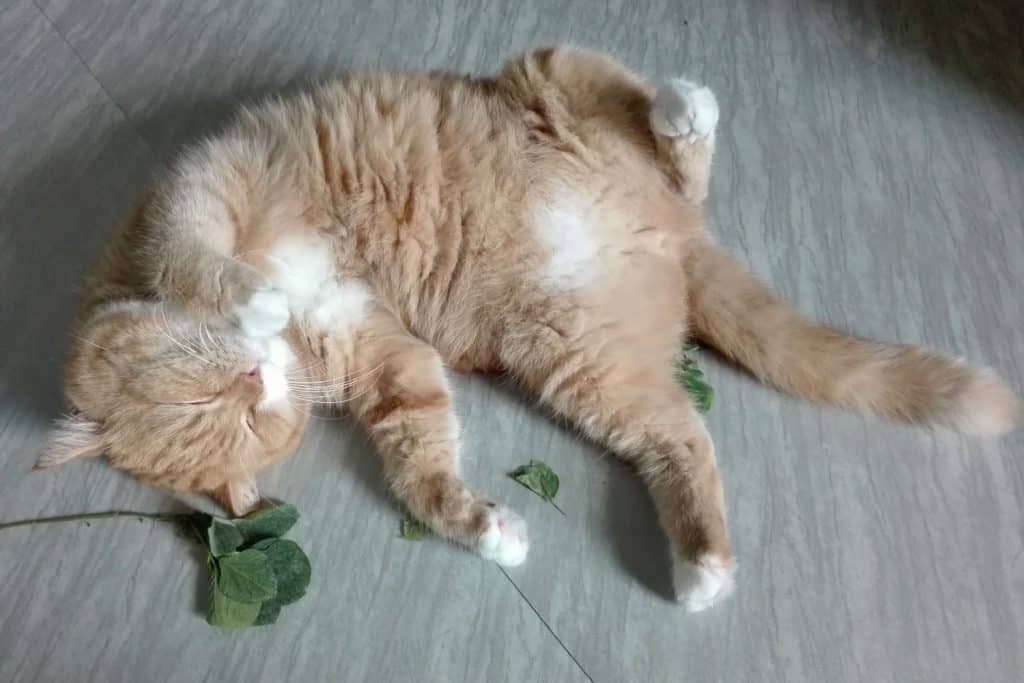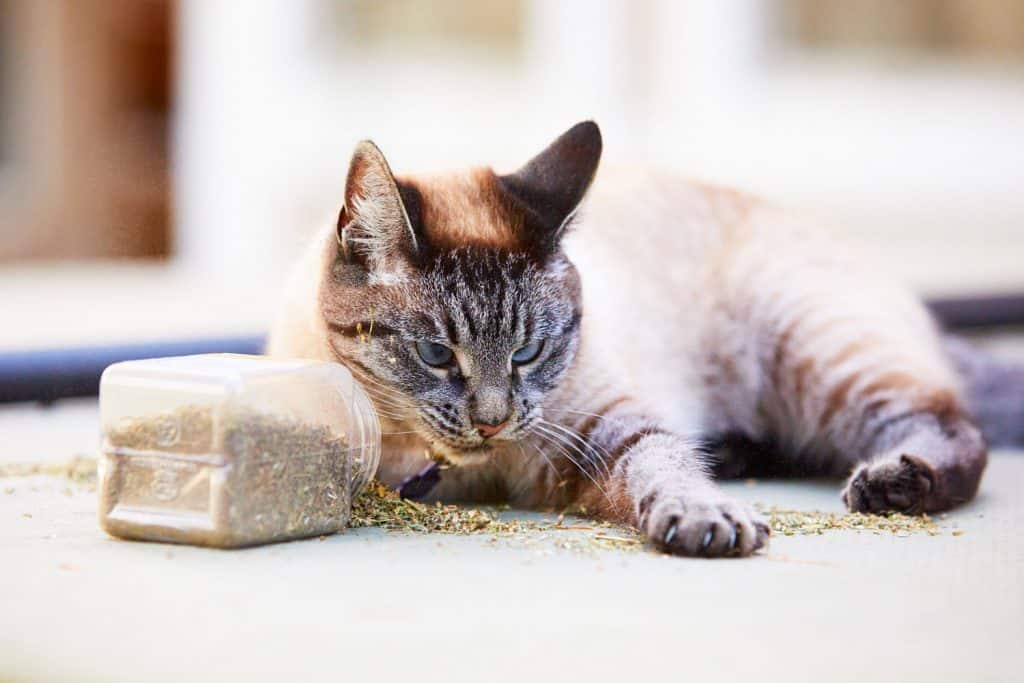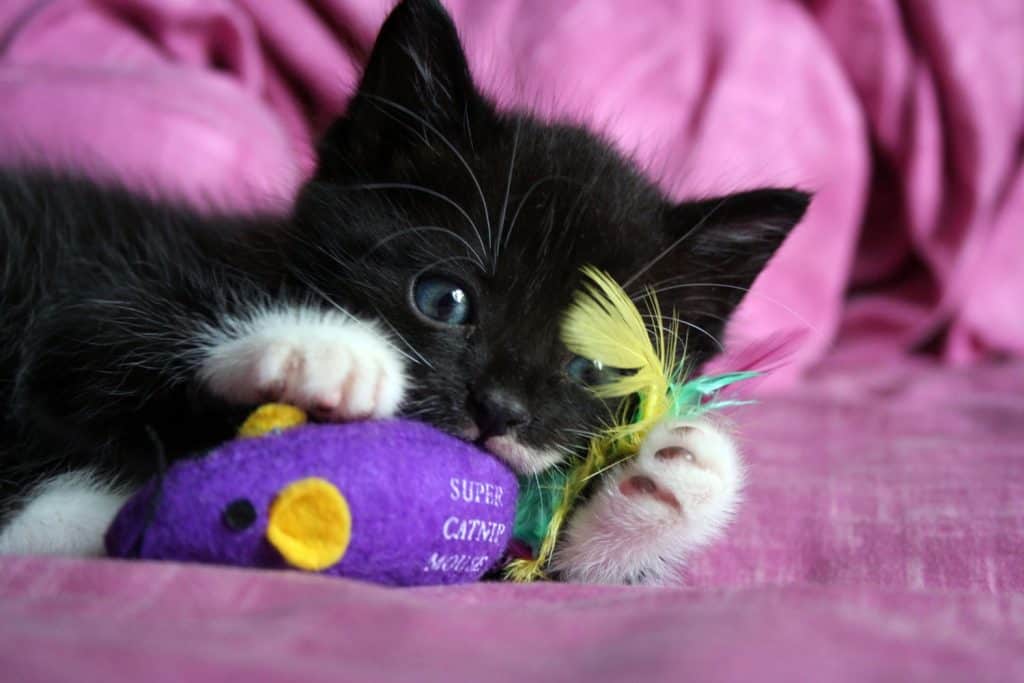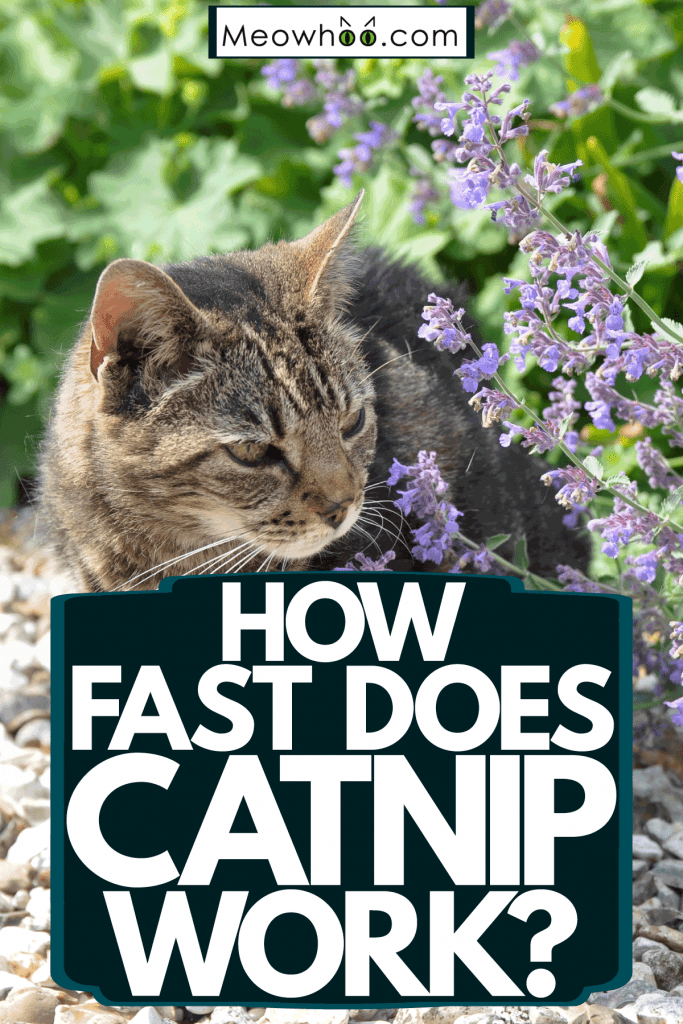Wondering about catnip's effects on your pet? How fast does catnip work? You're not alone. Many folks have the same questions and we're here to educate on this glorious herb.
We will answer additional questions such as how to know if it's working. Can it become a daily treat for your kitty? We'll also tackle your worries about catnip and kittens, and whether your pet could get addicted or, heaven forbid, suffer from having too much.
No need to worry if your pet is rolling around on the floor or not reacting at all - we've got you covered!
Understanding Catnip: What To Expect And When
Many cats are sensitive to catnip. Once they get a sniff of this herb, they act in a certain way that tells us that they are happy.
This effect is instantaneous, but it will also wear off after about 10 minutes. After this, cats become immune to the effects of catnip for some time.
Continue reading so that you can understand better how catnip affects felines, how fast the effects kick in, and how long they usually last.
We'll also answer your concerns if it is safe to give catnip to your pet, especially to those with little kittens.
How Long Does The Catnip High Last?
Catnip is an herb from the mint plant family. There is an essential oil in this plant that contains nepetalactone, which many cats are sensitive to.
The scent of this essential oil stimulates the cats' vomeronasal gland that's found at the roof of their mouths. It sends a signal to their brain and activates feelings of euphoria or happiness.
The effects of catnip on felines happen almost instantly as it doesn't take much to stimulate their senses. The changes in their behavior usually last for around 10 minutes and then the catnip's effects will gradually wear off.
After this, your cat will become temporarily immune to the influence of this plant. It might take anywhere between 30 mins to a few hours before it can work its magic again on your pet.
But nonetheless, they have already associated that smell or taste with a happy feeling.
However, not all cats are affected by the scent of this fragrant herb. Cat experts say that felines' responsiveness to catnip is hereditary and only about 50% of cats have this sensitivity.
So, don't expect catnip to work on all cats.

Signs That Catnip Is Working
Felines that are sensitive to catnip usually demonstrate these behaviors:
- rolling and flipping on the ground
- rubbing or mashing their face on the surface where catnip was sprayed or sprinkled
- growling and meowing simultaneously
- drooling or salivating
- losing focus
- falling asleep
According to pet experts, cats exhibit different behaviors depending on how they encountered catnip. When they smelled or inhaled this fragrant herb, they become hyperactive and act like they are happy.
But when eaten, catnip has the opposite effect on them that makes them calm and mellow.
But no matter which side of the spectrum they are in, expect these effects to last for only around 10 minutes.
After this, catnip will lose its effectiveness and your kitty will be back to her usual self.
Can I Give My Cat Catnip Every Day?
Catnip is a non-toxic, non-addictive, and 100% safe treat to give to your pet. However, experts recommend that you only give this to your cat twice or thrice a week.
Although there should be no adverse side effects if you prefer to give your feisty furball a catnip treat once every day, cat specialists are concerned that this herb will lose its potency over your pet if given frequently.
It is possible that they will become desensitized over time and it won't produce the desired effects or happy sensation on your cat anymore.

Do Cats Prefer Fresh Or Dry Catnip?
This perennial herb is easy to grow in your garden so you might want to plant some so that your cat has a constant source of catnip treat. But you can buy dried catnip leaves in your favorite pet stores. Catnip sprays are also offered in the market.
Fresh catnip is more potent than dried ones. A little bit of this plant can go a long way. Many cat owners say that their pets prefer dried over fresh catnip, though. They sprinkle catnip on their felines' toys, beds, or scratch posts so that they can inhale its goodness.
But as each cat is unique, each has her own preference when it comes to catnip as well. Some like their catnip fresh and still attached to the stem while some like them dried.

Can Cats Get Addicted To Catnip?
Some pet parents have this notion that catnips are like a drug that their cats can get addicted to. This plant is known to get a cat high. However, pet experts are quick to debunk this idea.
Vets say that catnip isn't addictive at all. It doesn't have any long-term effects on your feline whether mentally or physically. The feeling of euphoria is short-lived and cats don't hallucinate when they ingest this plant or inhale its fragrant scent.
It helps a lot that cats are quickly able to get accustomed to the scent of catnips and their brains need time to reset before they will become sensitive to its smell and taste once again.
Also, when felines are exposed to catnip frequently, it will lose its potency, and cats will become desensitized to its effects. This is why they can't get addicted to this plant.
Can Too Much Catnip Kill A Cat?
It's normal for pet parents to be concerned regarding the safety of the cat treats that they give to their furballs. You can now breathe a sigh of relief because vets say that catnip is 100% safe.
It doesn't contain toxins or any components that can harm your beloved pet even after having too much of it.
In case your pet inhales or ingests more than the recommended serving of this cat treat, the effect is no different from her first exposure to this fragrant herb. This is all fleeting and will soon come to pass.
Her brain will need time to be able to reset itself before it will once again become receptive to catnip.
This is a good thing, and it's the reason why she can never have too much of this treat because her brain loses its sensitivity to it and will only become sensitive to it after some time.
However, there have been cases wherein cats had diarrhea or became nauseous which led to vomiting after consuming too much of this herb.
Vets usually recommend observing and giving more water to your cats as they usually recover from catnip overdose after a few hours.
But if these symptoms persist in your pet, it's best to take her to the vet to get a proper diagnosis regarding her condition.

What Does Catnip Do To Kittens?
Although catnip isn't considered harmful for your little furballs, their bodies do not have the ability yet to react to catnip the way older cats do.
Pet experts say that kittens' sensitivity to catnip develops when they are around 6 months old.
But of course, this is a case-to-case basis as some kittens can be more sensitive to this herb at an earlier age while some only show reaction to it when they reach 1 year old. Some cats aren't sensitive to it at all.
This is important to know especially when you plan to use catnip in your pet training. It will only be effective if your little feline has the ability to respond to the scent of the essential oil in this fragrant plant.
Final Thoughts
Catnip high happens really fast and can wear off quickly also. It is a safe treat that you can give to your pet every now and then. But don't expect the same reactions from all cats as not all felines have the sensitivity to it.
You can also read How Long Should You Let Your Cat Play With Catnip? and Should You Put Catnip In A Cat Bed? to find out more about the effects of catnip on your pets.

Some elements on this page may have been created by our team using advanced AI to provide you with top-notch cat inspired ideas. Read more about our AI Content Policy.
